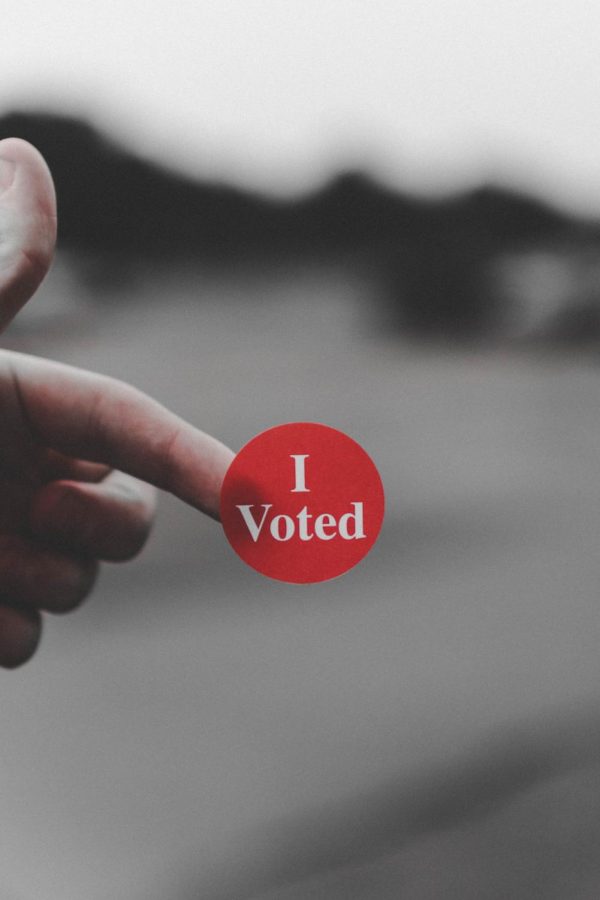Assembling millennial activists: Three ways to start your own political revolution
Don't let your rally cries fall on deaf ears
November 2, 2018
Crippling patriarchy got you down? Does climate change keep you up at night? Does the crushing weight of your student debt make it almost impossible to get out of bed in the morning?
We all have our demons. In today’s age of fake news and fears of nuclear warfare, many of us are left waving a white flag while our lawmakers devise schemes to deepen the gap between the haves and the have-nots. But what is the point of a democracy if we do not speak up for ourselves?
To put it simply, there is so much more we could be doing. In light of the 2016 election, millennials are beginning to understand just how damaging sitting idle can be. The real problem is finding a starting point.
Whether you have been “woke” for years or are just now opening your eyes to the big and scary world, you can follow these universal steps to take our country’s future into our own hands.
1. VOTE!
If you are tired of the dreary state of the world, do yourself a favor and go to the polls in November.
“The best first step is to actually vote for elected officials who will represent your ideals and visions for the world,” explains Julia Seremba, a campus organizer for MASSPIRG Students at UMass Lowell. ”
Young people are the least likely to turn out and vote, and all eligible 18-to 29-year-old voters came out less than 20 percent to the polls in 2016,” Seremba said.
Although voter registration for the 2018 election has expired in most states, explore all elections that you are eligible to vote in and get registered before the next deadline. Even something as seemingly mundane as a city council seat deserves your input as it will affect your life.
And remember, just because you are not going to the polls, does not mean the millions of baby boomers will follow suit. The most direct difference you can make is with a pen and paper and a voting ballot.
Research the ballot questions and candidates in order to make the most informed and honest decision for yourself. The U.S. could use more informed opinions at the polling stations next month.
2. Use social media
Although it may not make a physical change in your environment, social media is a fantastic and accessible tool to start a productive conversation on the state of affairs.
Want to record an unlawful arrest? Put that mess on your Instagram live. Need to know today’s news? Follow CNN or The New York Times on Twitter for the latest updates. Anything that occurs within a public setting is fair game for the most part when posting on the internet, so run free and expose the filthy world through your iPhone.
Social media is amazing because it provides us with information at the touch of a finger. It can connect us with like-minded individuals who can better help you form opinions and participate in the activist process. It has never been easier to inform yourself and promote a cause.
The First Amendment protects our right to post content as long as it complies with the private platform’s policies, so make sure to at least skim the terms and conditions the next time you log onto your Facebook and rant about the president.
3. Safely protest and demonstrate
If the state of affairs really has your blood boiling, there are countless protests and demonstrations to get involved in. Protesting can be intimidating, especially if it’s your first time, so it is best to plan ahead in order to avoid mishaps along the road.
Try to attend these sorts of events with a group. If you find yourself lacking in the friend department, or most of your social circle is on the other side of the political spectrum, check out any social media pages for the protest. Find a Facebook group to meet up with at your next march to ease the fear and tension.
In a piece published by The Atlanta Journal-Constitution, they advise charging your phone, bringing food and water and a first-aid kit filled with basic necessities, such as gauze and medicine. If mace somehow comes into the equation, they recommend soaking a bandanna in water and placing it over your mouth and nose to ease breathing.
For rowdy protests, police involvement is a very strong possibility. “You may be better off complying with police direction first and arguing your rights later,” Seremba said. “You’re no good to your cause if you’re injured and can’t continue protesting.”
While it is best to avoid any arrests in the first place, you are entitled to several protections and it is better to be aware of these prior to your legal troubles. It is more important to document every detail of a police encounter and report any complaints rather than get yourself in immediate or life-threatening danger. The First Amendment protects your right to record police interactions since they occur in a public setting.
The American Civil Liberties Union website lists Fifth Amendment protections, such as the right to remain silent or the right to a lawyer. These rights are extended to every person, regardless of immigration status, and could be used as leverage against the police when filing a complaint.
Nov. 6 can and will be a crucial turning point if you go to the polls. Many of us are finally coming to the age where we can make our voices heard, so use them to make a lasting impact.
Email Darian Barlow at [email protected]
